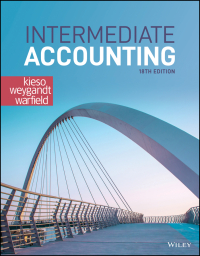Question
Shaftel Ready Mix is a processor and supplier of concrete, aggregate, and rock products. One division of the company operates in the intermountain western United
Shaftel Ready Mix is a processor and supplier of concrete, aggregate, and rock products. One division of the company operates in the intermountain western United States. Currently, Shaftel has 14 cement-processing plants and a labour force of more than 375 employees. With the exception of cement powder, all raw materials (for example, aggregates and sand) are produced internally by the company. U.S. demand for concrete and aggregates has been growing steadily, and in the west, the growth rate has been above the national average. Because of this growth, Shaftel has more than tripled its gross revenues over the past 10 years. Of the intermountain states, Arizona has been experiencing the most growth. Processing plants have been added over the past several years, and the company is considering the addition of yet another plan (to be located in Scottsdale). A major advantage of having another plan in Arizona is the ability to operate year-round, a feature not found in such states as Utah and Wyoming. In setting up the new plant, land would have to be purchased and a small building constructed. Equipment and furniture would not need to be purchased these items would be transferred from a plan that had been opened in Wyoming during the oil-boom period and closed a few years after the end of that boom. However, the equipment needs some repair and modification before it can be used. It has a book value of $200,000, and the furniture has a book value of $30,000. Neither has any outside market value. Other costs-such as those related to the installation of a silo, a well, electrical hookups, and so on-will be incurred. No salvage value is expected. The summary of the initial investment costs by category is as follows:
Land $20,000 Building 135,000 Equipment: Book value 200,000 Modifications 20,000 Furniture (book value) 30,000 Silo 20,000 Well 80,000 Electrical hookups 27,000 General setup 50,000 Total initial outlay $582,000
Estimates concerning the operation of the Scottsdale plant are given below:
Life of plan and equipment 10 years Expected annual sales (in cubic yards) 35,000 Selling price (per cubic yard) $45.00 Variable costs (per cubic yard): Cement $12.94 Sand/ gravel 6.42 Fly ash 1.13 Admixture 1.53 Driver labour 3.24 Mechanics 1.43 Plant operations (batching and cleanup) 1.39 Loader operator 0.50 Truck parts 1.75 Fuel 1.48 Other 3.27 Total variable $35.08
Fixed costs (annual): Salaries $135,000 Insurance 75,000 Telephone 5,000 Amortization 58,200* Utilities 25,000 Total fixed cost $298,200
*Straight-line amortization is calculated using all initial investment costs over a 10-year period, assuming no salvage value.
After reviewing the above data, Karl Flemming, vice-president of operations, argues against the proposed plant. Karl is concerned because the plant would earn significantly less than the normal 8.3 percent return on sales. All other plants in the company are earning between 7.5 and 8.5 percent on sales. Karl also notes that it would take more than five years to recover the total initial outlay of $582,000. In the past, Shaftel has always insisted that an investment's payback period be no more than four years. The company's cost of capital is 10 percent. Ignore tax effects.
Required: 1. Prepare variable-costing income statement for the proposed plant. Compute the ratio of net income to sales. Is Karl correct that the return on sales is significantly lower than the company average? 2. Compute the payback period for the proposed plant. Is Karl right that the payback period is greater than four years? Explain. Suppose that you were told that the equipment being transferred from Wyoming could be sold for its book value. Would this affect your answer? 3. Compute the NPV for the proposed plant. 4. Explain to the CEO if this project is viable. BE sure to show All work clearly.
What should we suppose in solving this question:
Assumption a) The plant had a sunk cost for the BV equipment 200,000 and thus in this plant we can remove the 200 000 from the initial 582 000 initial outlay, consequently no depreciation on this equipment except for the improvement
OR
Assumption b ) The former plant sent equipment to this plant at a BV cost of 200,000 and thus the whole 582 000 is an initial cost outlay, and depreciation is divided by 10 years as presented


Step by Step Solution
There are 3 Steps involved in it
Step: 1

Get Instant Access to Expert-Tailored Solutions
See step-by-step solutions with expert insights and AI powered tools for academic success
Step: 2

Step: 3

Ace Your Homework with AI
Get the answers you need in no time with our AI-driven, step-by-step assistance
Get Started


